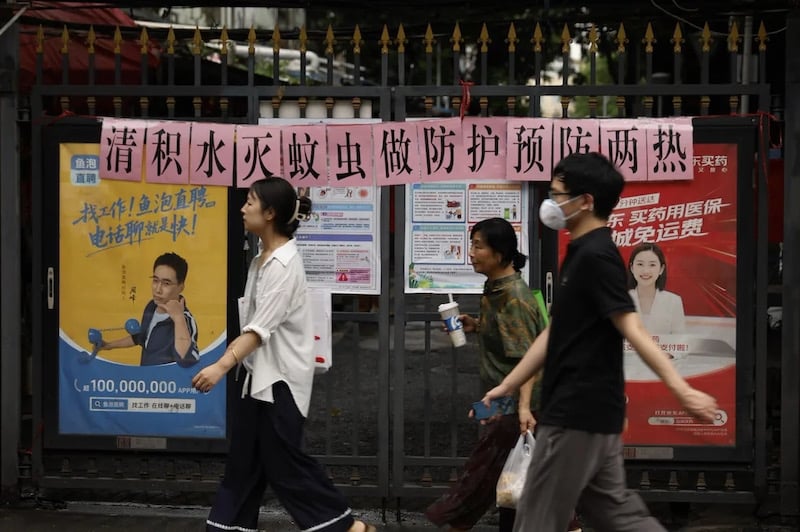Health authorities in southern China have launched a large-scale campaign to curb the spread of the mosquito-borne Chikungunya virus, marking the largest outbreak the country has seen since the disease was first detected there about two decades ago. Foshan city, with a population of around nine million, has recorded over seven thousand cases since early July, with scattered cases reported in Hong Kong, Macau, and neighboring provinces including Hunan and Fujian.
China is employing control measures inspired by its COVID-19 response, including mass testing campaigns and isolating infected individuals in hospitals equipped with mosquito-proof beds, alongside extensive sanitation of neighborhoods and public buildings.
According to Xinhua agency, Foshan has increased its capacity of mosquito-proof isolation beds to over seven thousand, spread across dozens of health centers.
Innovative methods are also part of the response, such as using drones to detect stagnant water sites, releasing fish that feed on mosquito larvae, and spreading larvae of elephant mosquitoes that prey on the disease-carrying Aedes mosquitoes.
Chikungunya symptoms typically appear four to eight days after a bite from an infected mosquito, including fever and severe joint pain that may last months or years, along with fatigue and nausea.
Although rarely fatal and not transmitted directly between humans, infants and the elderly are more susceptible to severe complications. There is no specific treatment, with paracetamol used to relieve symptoms.
Earlier, Moroccan health experts reassured the public regarding the “global discussion” on Chinese measures, confirming Morocco is in a “safe” zone for this virus, which is concentrated in tropical humid regions, especially sub-Saharan Africa, with no cases reported in the kingdom so far.
Health expert Said Afif explained the virus is mainly transmitted by the “tiger mosquito” common in hot and humid areas, and treatment focuses on symptom relief, while mosquito control remains a key preventive measure.
Health policy researcher Tayeb Hamdi emphasized that the epidemiological situation in Morocco does not warrant concern, noting that the strict measures applied in China are not considered necessary in Morocco. He added the virus is not deadly but requires strengthening monitoring and early diagnosis mechanisms.
Hamdi pointed out that immunity acquired by Moroccans from COVID-19 vaccination campaigns is sufficient to avoid severe cases, with vulnerable groups needing to take necessary precautions.
Global health experts warn that climate change and increased rainfall and hurricanes raise the risks of mosquito-borne diseases such as Chikungunya and dengue fever.
According to the European Centre for Disease Prevention and Control, about 240,000 cases and 90 deaths linked to the virus have been recorded worldwide this year, mostly in South America.













Recommended for you
Exhibition City Completes About 80% of Preparations for the Damascus International Fair Launch
Talib Al-Rifai Chronicles Kuwaiti Art Heritage in "Doukhi.. Tasaseem Al-Saba"
Unified Admission Applications Start Tuesday with 640 Students to be Accepted in Medicine
Egypt Post: We Have Over 10 Million Customers in Savings Accounts and Offer Daily, Monthly, and Annual Returns
His Highness Sheikh Isa bin Salman bin Hamad Al Khalifa Receives the United States Ambassador to the Kingdom of Bahrain
Al-Jaghbeer: The Industrial Sector Leads Economic Growth